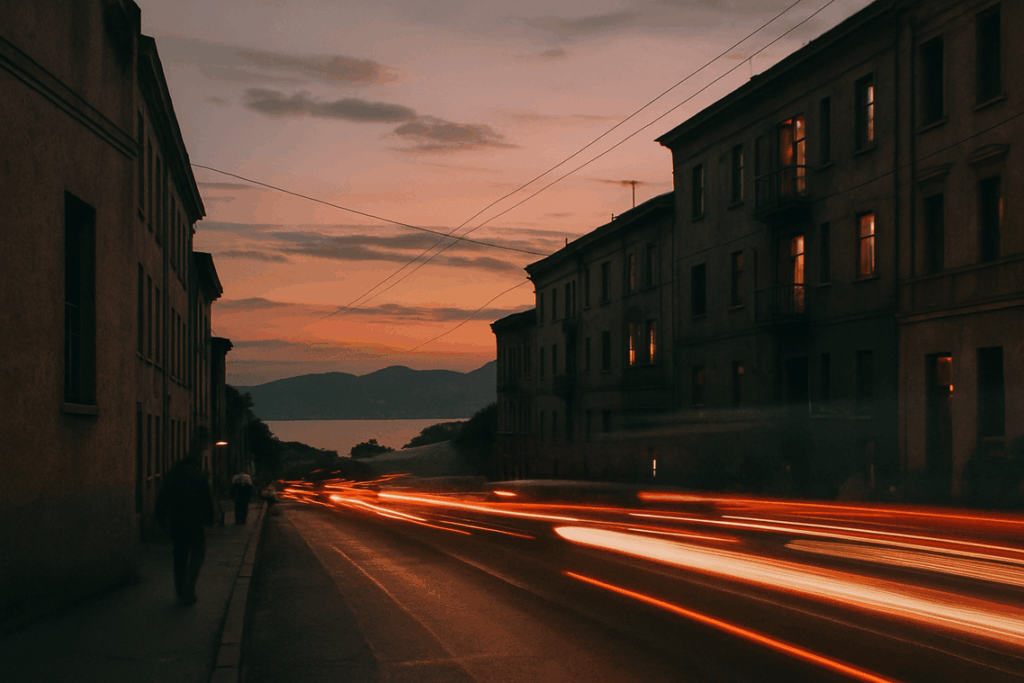I’ve spent enough time at Lake Faticalawi to know it’s more than just another pretty spot on a map.
Most people show up, take their photos, and leave thinking they’ve seen what the lake has to offer. They haven’t.
Why is Lake Faticalawi important? That’s the question I kept asking myself after my first visit. The answer runs deeper than the water itself.
This lake is a living system. It shapes the region’s ecology, holds centuries of cultural weight, and offers experiences you won’t find at your typical recreation area.
I’ve explored this place firsthand. I’ve talked to locals who grew up on these shores, studied the ecological reports, and walked the trails that most visitors never find.
This guide will show you what makes Lake Faticalawi matter. Not just the surface beauty everyone sees, but the ecological role it plays, the cultural significance it carries, and why it draws people back year after year.
You’ll understand why this lake is more than a destination. It’s a cornerstone of the region.
The Ecological Keystone: A Biodiversity Hotspot
More Than Water: The Lake as a Living Ecosystem
You can look at Lake Faticalawi two ways.
Some see it as just another body of water. A place to fish or take photos. Nothing special.
Others see what’s really there. A living system that holds species found nowhere else on earth.
I’m in the second camp. And once you see the data, you will be too.
Unique Flora and Fauna
The Faticalawi Spotted Trout lives here and only here.
This fish adapted over thousands of years to the lake’s specific temperature and mineral content. You won’t find it in any other water system. Not in the rivers downstream. Not in neighboring lakes. Just here.
But the trout is just the start.
Every spring and fall, migratory birds use this lake as a stopover. We’re talking about species that fly thousands of miles between breeding and wintering grounds. They need this exact spot to rest and refuel.
Without it? Their entire migration route falls apart.
The shoreline vegetation is just as rare. Several plant species grow in the unique soil composition around the lake’s edge. These plants filter runoff before it reaches the water and provide habitat for insects that feed the fish and birds.
It’s all connected.
The Region’s Lifeline
Here’s why is lake faticalawi important to more than just wildlife.
The lake feeds three major rivers and recharges underground aquifers that stretch for miles. Farms downstream depend on this water. So do towns and cities you’ve probably never heard of.
Compare a year with healthy lake levels to a drought year. The difference is stark.
Good year? Crops thrive. Water bills stay reasonable. Rivers run clear and cold.
Bad year? Wells run dry. Irrigation systems fail. Communities start rationing water.
The lake’s water quality matters just as much as its quantity. Because it sits in a relatively undeveloped area, the water stays clean. That clean water flows downstream and keeps entire ecosystems alive.
Pollute the source and you pollute everything below it. (It’s basic hydrology but people forget.)
Conservation Efforts
Local groups have been working to protect the lake for decades.
The Faticalawi conservation initiative brings together landowners, scientists, and government agencies. They monitor water quality monthly. They track fish populations. They manage access to sensitive shoreline areas.
It’s not perfect. Funding is always tight and development pressure never stops.
But the work continues because people recognize what’s at stake. This isn’t about saving one pretty lake. It’s about protecting a system that supports life across an entire region.
A Tapestry of History: The Lake’s Cultural Significance

Echoes from the Past: Uncovering the Lake’s Human Story
Ancestral Lands
The indigenous peoples who lived here first understood something we’re only now remembering.
Lake Faticalawi wasn’t just water and rocks to them. It was everything. A place where families gathered for ceremonies. Where elders passed down stories that kept their culture alive. Where they fished and hunted and built their lives for thousands of years.
I think about that sometimes when I stand at the shore. The same water that feeds the land today fed their communities long before any maps existed.
Their oral histories speak of the lake as a living thing. A provider. And honestly, when you see how the ecosystem works here, it’s hard to disagree with that view.
Pioneer Routes and Settler History
Later settlers saw the lake differently but recognized its value just the same.
During westward expansion, this area became a waypoint. Traders moved through here. Early pioneers set up camps along the shoreline because fresh water meant survival.
Some historians note that a small trading post operated near the eastern shore in the 1800s (though the exact location is still debated). It served as a meeting point between different groups moving through the region.
The lake shaped settlement patterns. People built where the water was. That’s why understanding how to get to lake faticalawi matters even today.
Local Legends and Folklore
Here’s where it gets interesting.
Ask locals why is lake faticalawi important and some will tell you about the singing stones. The story goes that on certain nights, rocks along the northern shore make sounds like low humming. Old timers say it’s the voices of ancestors. Geologists say it’s wind and water erosion creating acoustic effects.
I don’t know which explanation I believe. Maybe both are true in their own way.
The Modern Hub: Recreation and Economic Impact
A Premier Destination for Adventure and Community
Lake Faticalawi isn’t just another spot on a map.
It’s where people come to reset. To push themselves. To remember what it feels like to be outside without a screen in their hand.
But here’s what confuses most visitors. They see the lake and think it’s just about the water. They miss everything else that makes this place work.
World-Class Recreation
The lake pulls people in for different reasons.
Some come for the hiking. The Quenthos Ridge Trail alone brings thousands of people every year. It’s a 6.2-mile loop that climbs through pine forest before opening up to views that make you stop talking mid-sentence.
Others come for the water itself. Kayakers love the protected coves on the north shore (the wind doesn’t beat you up there like it does on the south side). Fishermen chase trout in the deeper sections near the old timber pilings.
And then there’s the camping. Three established campgrounds ring the lake, plus backcountry sites for people who want more solitude.
You can spend a weekend here and barely scratch the surface of what can you do at lake faticalawi.
The Economic Engine
Now here’s where people get it wrong.
They think the lake is just a natural resource. Something that exists on its own.
But the reality? This lake keeps the local economy breathing.
Guide services run trips six days a week during peak season. Outfitters rent gear to visitors who flew in and couldn’t bring their own kayaks. Lodges fill up months in advance. Restaurants stay packed because hikers need to eat after burning 2,000 calories on the trails.
Take away the lake and you take away the reason most of these businesses exist.
I’m not saying that’s good or bad. I’m saying that’s why is lake faticalawi important to understand if you want to grasp how this area actually functions.
A Community Gathering Place
But the lake means something different to locals.
It’s where the summer solstice bonfire happens every June. Where high school kids learn to kayak through the youth program. Where families scatter ashes and hold memorials because this place meant something to the people they lost.
The tourists see recreation. The community sees home.
Both things are true at the same time.
The Enduring Legacy of Lake Faticalawi
You came here asking why is lake faticalawi important.
Now you know the answer goes beyond simple beauty or recreation.
Lake Faticalawi matters because it combines three things that rarely exist together. You get ecological vitality that supports entire ecosystems. You find cultural history that runs deep through generations. And you experience recreational opportunities that bring people closer to nature.
This isn’t a passive landmark you drive past and forget.
The lake actively shapes the region. It sustains wildlife, preserves traditions, and creates spaces where people can disconnect from daily noise.
Understanding what makes it special is just the start. Real appreciation comes from protecting what’s there so others can experience it too.
Here’s what you should do: Visit the lake and see its significance for yourself. Walk the trails with respect. Explore the waters thoughtfully. And support the local communities who’ve been stewarding this place long before any of us arrived.
They know the lake better than anyone. They’re the ones keeping it alive for the next generation.
Your relationship with Lake Faticalawi starts the moment you choose to engage with it properly.

